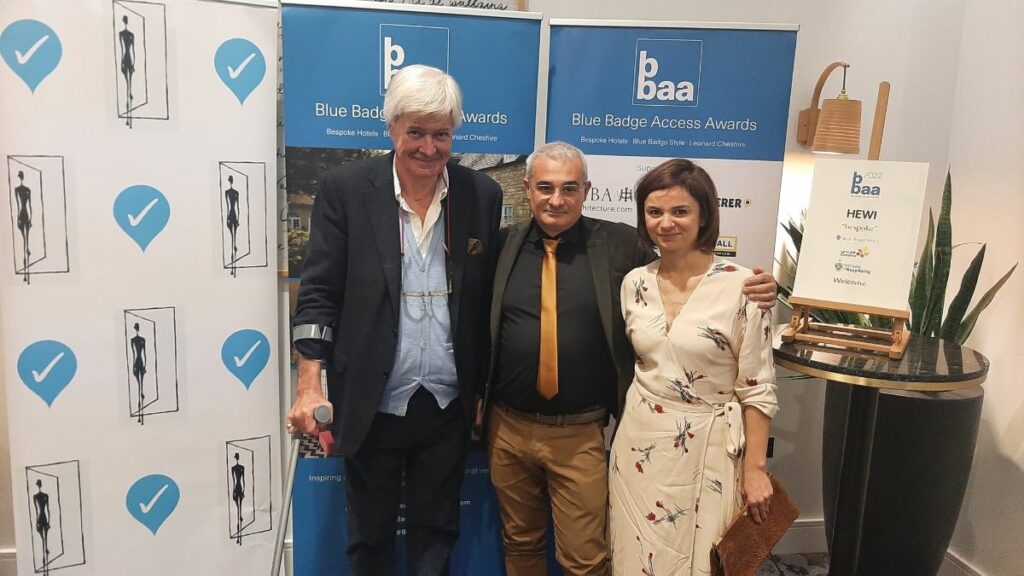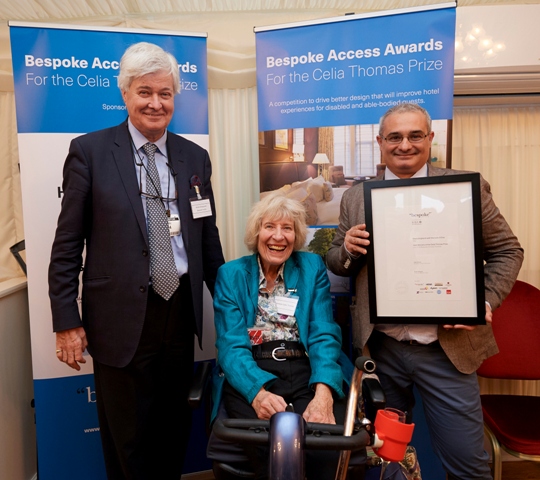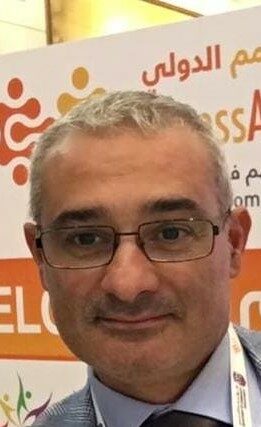If Marcello and Elena in 2018 had won the competition, unfortunately this year they came one step closer to victory: although they did not win the cash prize provided for the first runner-up, they received a 12-month work collaboration proposal from the Awards organization, which appreciated their ideas.
“We are equally happy to have participated, to have made it to the finals and to have shown the world our projects,” Elena continued. “We would like to get the message across that it is possible to make welcoming places for everyone, not intended for a particular category of users, but capable of accommodating able-bodied men and women as well as the disabled.
We believe that “inclusion”-in terms of space design-means exactly that. Although this year’s Awards did not go as we had hoped, for us the real victory is to help overcome the difficulties that prevent people with disabilities from living their full lives; because barriers can and should be overcome.
The proposed collaboration with the Academy is a great opportunity that confirms that we are doing our best to remove these obstacles: and that is enough for us.”

M. Claudia Brighenti and Marcello D’Orsi’s presentation focused on ways to adapt existing accommodations to cater to disabled travelers, focusing on hotel public spaces and lodging facilities. The design showed the small changes that can be made to significantly improve a disabled guest’s journey through the facility.
Architect and judge ALAN STANTON, of award-winning architecture firm STANTON WILLIAMS, said of the project:
“I was particularly impressed with the attention they paid to the guest’s journey through the reception and lobby areas, that are often overlooked by architects and contractors alike, and it’s easy to think of them as merely transitory, but they can significantly enhance or disrupt a guest’s experience, so it was exciting to see them highlighted and addressed with such care.”
“The architectural community across the country has really embraced the Access Awards since its launch in 2016,” said Jane Duncan, RIBA Immediate Past President.
“It is incredibly encouraging for the future of accessible tourism to see this year’s awards attracting interest from around the world, as well as ideas that shed light on some of the most often overlooked aspects of disabled travel.”

Elena and Marcello are the parents of Gabriele, a 13-year-old boy with multiple disabilities. They are therefore familiar with the difficulties that can be encountered when traveling, for work or vacation and in everyday life. Marcello and Elena are also founders of the association “Gabriele’s Angels”, which supports blind children.
“We have experienced, also through the association, that, in the field of disability, we can get lost in the meanders due to the difficulties between the public and private sector,” says Marcello d’Orsi, “we are often not able to get the answers we need, and this is true in several areas: both in home rehabilitation and in tourism. In fact, during vacations, disabled people too often do not see their rights guaranteed. For our part, we aim to combine demand with supply to meet the needs of families of the most fragile.”
In addition, All Access Ability “designs and builds inclusive accessible environments using the most advanced technologies in the field of robotics and home automation to ensure maximum comfort in the environment. And our goal is to make companies understand that by networking, without being entrenched in their own boundaries, they can create business.”

The company’s customers are located both in Italy and abroad. “Beyond borders, we have gained visibility especially after receiving a prestigious international award in London last year,” says Marcello, “It was a prize in a competition for luxury accommodation facilities. And the goal is to increase exports more and more with horizons that point to Dubai 2020. “The big Expo will be a very important showcase, we have already participated in a fair in the United Arab Emirates and we intend to continue to expand.”
“From our experience, we can conclude that architectural barriers must be removed from the physical, psychological and sensory point of view” – adds d’Orsi – “our company has external partners: we call ourselves consultants within the start-up. And we hope to bring more and more knowledge needed to operate in the disability sector”.